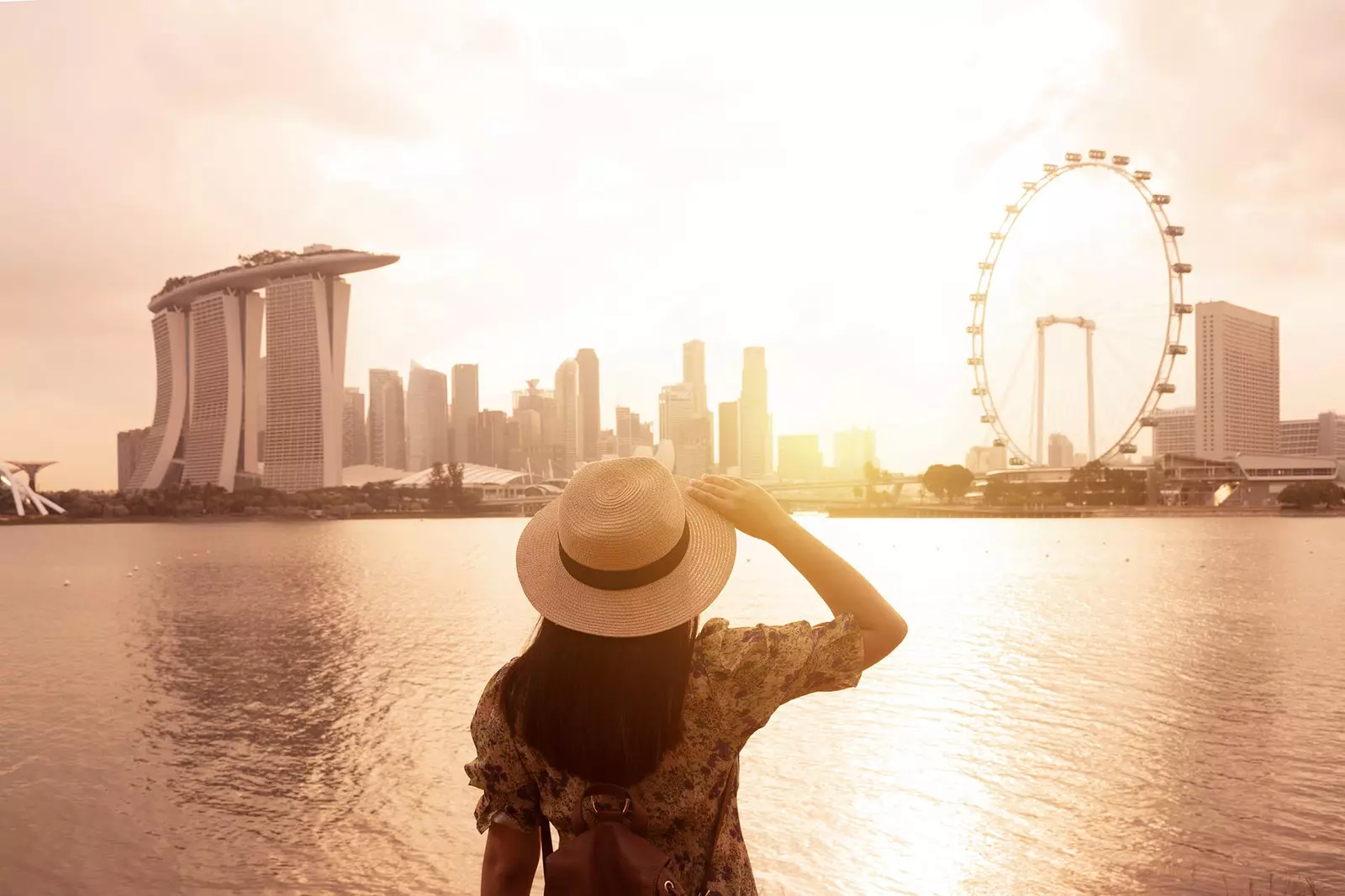
You can't travel, and it's normal to be sad about it: so you can face it
"Two days after Israel decided to close its borders to the countries affected by the coronavirus, including Spain, he must have left on a trip to Tel Aviv to spend a few days, on a press trip, to learn how the Jewish carnival is celebrated. in its two main cities. Obviously, they told us from the tourist office that everything was cancelled: trip and celebration".
Thus begins the story of Cristina Fernandez , travel journalist for programs such as Andaluces por el mundo and specialized newspapers such as Traveler. These last few days they canceled another one, Fuerteventura . But the one that cost her the most to assimilate and postpone was the one that she had scheduled for the first Monday of quarantine, when we contacted her.
"Right now I should be boarding for South Africa , where he would spend ten days, three of them making a train trip with a prestigious national railway company. It was a trip that she had contracted since September of last year, for which she had already confirmed and committed to reporting, and for which she felt special emotion. I decided to speak with the airline and other companies with which I had closed services to propose to postpone it when I saw what was coming. Two days later, the state of alarm was declared ", she recalls.

South Africa, an incredible destination
Like her, there are many who have had to cancel trips and vacations , not for work, but for mere passion. And any reader of Traveler knows that, for all of us who have the love of travel inscribed in our DNA, this circumstance can be really sad.
"It is essential to understand that it is very normal for us to be disappointed or frustrated ", explains to Traveler.es the psychologist James Burque . "We need time to absorb it, and this is where the process of loss or acceptance comes in, a very natural mechanism for recovering from a loss, in this case, missing a trip," he continues.
Thus, according to Burque, mourning is not only experienced in the face of the loss of loved ones, but because of any personal loss, including that of a trip. As he himself told us, there are several psychological benefits of traveling , so it is likely that we would have put many hopes into vacations, including the need to experience disconnection from the usual routine and rest.
THE RIVER METAPHOR
"In the grieving mechanism, a series of negative emotions occur that will heal that wound. For this reason, it is very important to understand that we need time to heal and feel this healthy pain in which emotions such as anger, disappointment or sadness are found", the professional tells us.
To explain the process, Burque uses the metaphor of a river flowing down from the mountains to the sea. "The first thing we see in this river is that the water that comes out of the mountains needs time to reach the sea, that is, grief needs time : recovering from a loss is not something magical, and we need time to feel pain and mourn the loss ".

The river metaphor can help us understand the grieving process
"Then we see that the duel has a series of stages, but, just as a river does not go in a straight line, neither does the duel : the phases are superimposed, regressing at times but definitely moving forward over time. We also see that the water of this river is made up of negative emotions (sadness, anger, guilt, anguish...), fundamental emotions in mourning because they help us to recover and that, finally, will flow into the sea, in what would be the sea. of acceptance. In some way and following the metaphor, the water of the river would be the tears that we shed when we cry for what is lost, because crying is of some use to human beings, it is used to recover us and accept our reality".
"The mission of so much pain and negative emotions (the word emotion comes from 'motion', which means movement), is to take us down this river until it ends up in the sea of acceptance through a journey that is not easy at all," he continues.
For this reason, Burque recommends us, to face this reality, try to assimilate the explained mechanism and "understand our pain". "It helps a lot verbalize our discomfort and share it . It can also help to focus on other areas of our lives (hobbies, family, partner, work...). From there, you have to take small steps and focus on new goals in the short, medium and long term. When we feel better, it is always very good to start get excited about a new trip in the future , building it mentally, visualizing it, savoring it... and little by little, we will recover", he affirms.
FRUSTRATION AND CONCERN
That process has already gone through Lorena G. Diaz , another travel journalist with articles in the main newspapers of the country, including this one. "My life consists of traveling (especially flying), discovering hotels, restaurants and destinations and writing about it. A privileged one, come on !" she says.
In her case, the canceled trips included destinations as appealing as Singapore, Australia and Los Angeles . "Honestly, at first I was very frustrated, but as the days went by, seeing what a situation we are coming to, my feelings have changed from that initial frustration to relief," she explains. "The truth is that I miss traveling a lot, and sometimes I am overwhelmed by the worry of: 'Now what? If I don't travel, I don't work?'"

It's hard to give up a trip to Singapore
However, the professional affirms that, most of the time, she remains calm. " We have done the right thing, we must be responsible ", she assures. "I try to overcome this setback by thinking and working on future trips. In the end, this has to end one day, hopefully sooner rather than later, so I'm already focused on new destinations and opportunities. Also is true that the crisis in the sector is noticeable , and all the agents of the tourism value chain are very pessimistic, but it is necessary to invest again so that the wheel turns again. You have to build trust, "she analyzes.
Cristina also feels a strange mixture of calm and anguish. "For me, working isn't just my job: it's my life. And at the same time that stopping these trips means not being able to write the corresponding articles that I already had closed with the different media for which I collaborate (that is, income that she had and that they will come, yes, but later), also means stop doing what I love the most, which is traveling . Suddenly, you feel that your freedom is restricted, and it is something alien to us, because we have never experienced a situation like this, "she details.
"And nothing happens, because sooner or later everything will go back to the way it was before and trips will resume, but when everything happens so suddenly and you don't expect it, when you're practically packing your suitcase to leave and your calendar gets out of whack two seconds, it's hard to take it in. At least, that's what has happened to me: frustrates me . In fact, I had a hard time making the decision to postpone the trip to South Africa thinking that it was still very exaggerated doing it, but I acted out of responsibility.
"This was just four days ago, and look at everything that's happened in between. Right away she knew she'd done the right thing: there will be time to travel and work when all this happens. Now, it's time to stay at home writing and telling many other stories that there are to tell about the world. You can also travel the world without leaving home," says the expert. " Not traveling is the most consistent, responsible and supportive thing that can be done right now , and being aware of this, the rest is forgotten".
